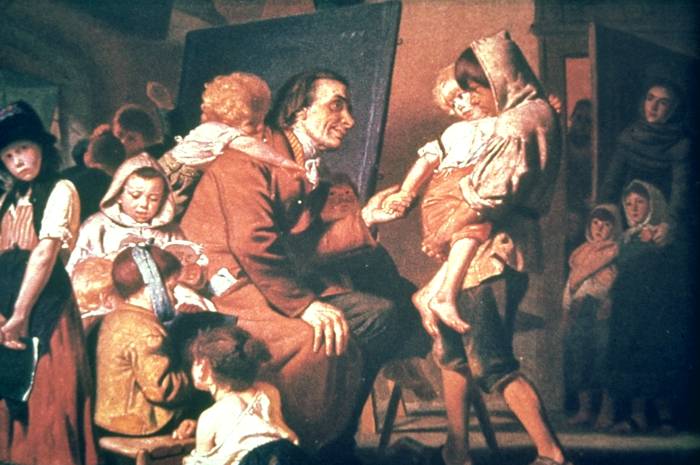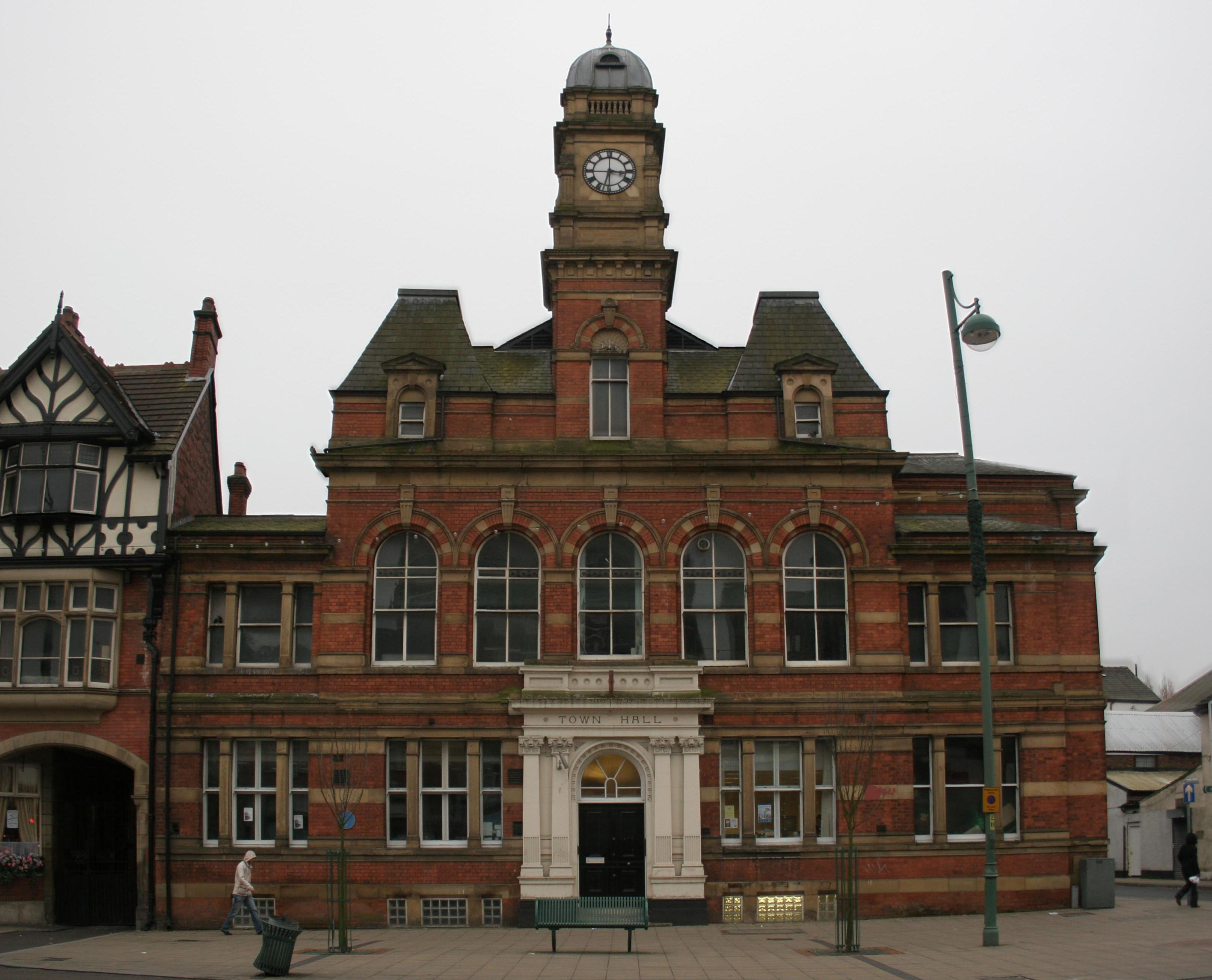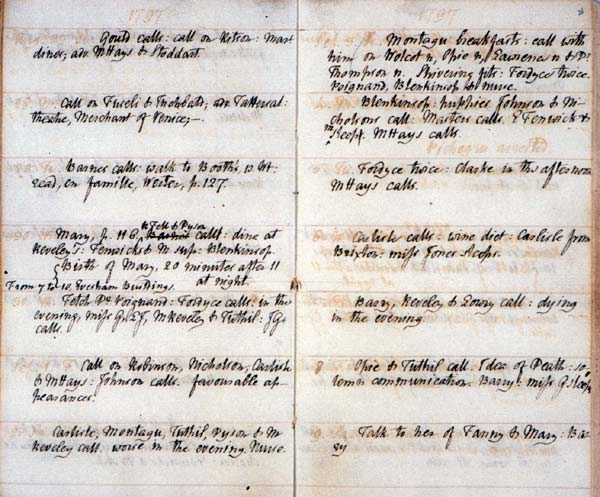|
Annie Armitt
Annie Armitt (1850 – 30 November 1933) was an English novelist, poet, short story writer, and essayist. She was also one of the founders of a school in Eccles, England. Early years Annie Maria Armitt was born in Salford, England, in 1850. She was the middle of three gifted daughters of William and Mary Ann (Whalley) Armitt. The sisters were all well educated. Armitt, who knew from an early age that she wanted to be a writer, studied English literature at Islington House Academy in Salford, which trained people to teach according to the Pestalozzian principles. Her older sister Sophie took to botany and would later become a nature writer. Her younger sister Mary Louisa (known as Louie) excelled at music and natural history. She later wrote (mainly for periodicals) on topics ranging from ornithology to local history. Founding a school Armitt travelled to Paris in 1866 with Sophie to study French, but the following year her father died unexpectedly and she returned to England. ... [...More Info...] [...Related Items...] OR: [Wikipedia] [Google] [Baidu] |
Mary Louisa Armitt
Mary Louisa Armitt (31 July 1851 – 24 September 1911) was an English polymath. She was a teacher, writer, ornithologist and philanthropist. She was the funder and founder of the Armitt Library, Ambleside. Life Armitt was born in Salford, Lancashire in 1851. She was one of three gifted daughters who were born to William and Mary Ann Armitt (née Whalley). All three girls wrote, and they all attended Islington House Academy, but each specialised in a different subject.Eileen Jay, "Armitt, Mary Louisa (1851–1911)", ''Oxford Dictionary of National Biography'', Oxford University Press, 200accessed 12 Nov 2015/ref> This academy was in Salford and it trained people to teach along Pestalozzian principles. Sophia, who was born in 1847, took botany and art while her younger sister Annie Maria, who was born in 1850, studied English literature. Mary—who was known as Louie—was the youngest and excelled at music and natural history. She was educated at the Mechanics' Institute in Ma ... [...More Info...] [...Related Items...] OR: [Wikipedia] [Google] [Baidu] |
Sophia Armitt
Sophia Armitt (1847 – 12 June 1908) was a British teacher, writer, and naturalist. Life Sophia Armitt was born in Salford in 1847, one of three gifted daughters of William and Mary Ann (Whalley) Armitt. All three girls wrote, and they all attended Islington House Academy, but each specialised in a different subject. Armitt took to botany and art, while her middle sister Annie Maria studied English literature and her youngest sister Mary Louisa was a polymath who excelled at music and natural history.Eileen Jay, ‘Armitt, Mary Louisa (1851–1911)’, Oxford Dictionary of National Biography, Oxford University Press, 200accessed 12 Nov 2015/ref> Armitt's parents encouraged their daughters' education, and Armitt attended Manchester School of Art.Armitt sisters Armitt Museum and Library, Retrieved 12 Nove ... [...More Info...] [...Related Items...] OR: [Wikipedia] [Google] [Baidu] |
City Of Salford
The City of Salford () is a metropolitan borough within Greater Manchester, England. The borough is named after its main settlement, Salford. The borough covers the towns of Eccles, Swinton, Walkden and Pendlebury, as well as the villages and suburbs of Monton, Little Hulton, Boothstown, Ellenbrook, Clifton, Cadishead, Pendleton, Winton and Worsley. The borough has a population of 270,000, and is administered from the Salford Civic Centre in Swinton. Salford is the historic centre of the Salford Hundred an ancient subdivision of Lancashire. The City of Salford is the 5th-most populous district in Greater Manchester. The city's boundaries, set by the Local Government Act 1972, include five former local government districts. It is bounded on the southeast by the River Irwell, which forms part of its boundary with Manchester to the east, and by the Manchester Ship Canal to the south, which forms its boundary with Trafford. The metropolitan boroughs of Wigan, Bolton, and ... [...More Info...] [...Related Items...] OR: [Wikipedia] [Google] [Baidu] |
Johann Heinrich Pestalozzi
Johann Heinrich Pestalozzi (, ; 12 January 1746 – 17 February 1827) was a Swiss pedagogue and educational reformer who exemplified Romanticism in his approach. He founded several educational institutions both in German- and French-speaking regions of Switzerland and wrote many works explaining his revolutionary modern principles of education. His motto was "Learning by head, hand and heart". Thanks to Pestalozzi, illiteracy in 18th-century Switzerland was overcome almost completely by 1830. Life Early years – 1746–1765 Pestalozzi was born on 12 January 1746, in Zürich, Switzerland. His father was a surgeon and oculist who died at age 33 when Pestalozzi, the second of three children, was five years old; he belonged to a family who had fled the area around Locarno due to its Protestant faith. His mother, whose maiden name was Hotze, was a native of Wädenswil on the lake of Zürich. The family also had a maid, Barbara Schmid, nicknamed Babeli. After the death of Pestalo ... [...More Info...] [...Related Items...] OR: [Wikipedia] [Google] [Baidu] |
Eccles, Greater Manchester
Eccles () is a town in the City of Salford in Greater Manchester, England, west of Salford and west of Manchester, split by the M602 motorway and bordered by the Manchester Ship Canal to the south. The town is famous for the Eccles cake. Eccles grew around the 13th-century Parish Church of St Mary. Evidence of pre-historic human settlement has been discovered locally, but the area was predominantly agricultural until the Industrial Revolution, when a textile industry was established in the town. The arrival of the Liverpool and Manchester Railway, the world's first passenger railway, led to the town's expansion along the route of the track linking those two cities. History Toponymy The derivation of the name is uncertain, but two suggestion have been proposed. The received one is that the "Eccles" place-name is derived from the Romano-British ''Ecles'' or ''Eglys'' ("eglwys" in Welsh means "church"), which in turn is derived from the Ancient Greek Ecclesia via the La ... [...More Info...] [...Related Items...] OR: [Wikipedia] [Google] [Baidu] |
Hawkshead
Hawkshead is a village and civil parish in Cumbria, England, which attracts tourists to the South Lakeland area. The parish includes the hamlets of Hawkshead Hill, to the north west, and Outgate, a similar distance north. Hawkshead contains one primary school but no secondary school and four public houses. Geography Hawkshead is just north of Esthwaite Water, in a valley to the west of Windermere and east of Coniston Water. It is part of Furness, making it a part of the ancient county of Lancashire. History The township of Hawkshead was originally owned by the monks of Furness Abbey; nearby Colthouse derives its name from the stables owned by the Abbey. Hawkshead grew to be an important wool market in medieval times and later as a market town after the Dissolution of the Monasteries in 1532. It was granted its first market charter by King James I in 1608. In 1585, Hawkshead Grammar School was established by Archbishop Edwin Sandys of York after he successfully petitioned Qu ... [...More Info...] [...Related Items...] OR: [Wikipedia] [Google] [Baidu] |
The Westminster Review
The ''Westminster Review'' was a quarterly United Kingdom, British publication. Established in 1823 as the official organ of the Philosophical Radicals, it was published from 1824 to 1914. James Mill was one of the driving forces behind the liberalism, liberal journal until 1828. History Early years In 1823, the paper was founded (and funded) by Jeremy Bentham,I Ousby ed., ''The Cambridge Guide to Literature in English'' (CUP 1995), p. 1008. who had long pondered the possibility of establishing a journal for propagating Radical views. The first edition of the journal (January 1824) featured an article by James Mill (continued in the second by his son John Stuart Mill), which served as a provocative reprobation of a rival, more well-established journal, the ''Edinburgh Review'', castigating it as an organ of the Whigs (British political party), Whig party, and for sharing the latter's propensity for fence-sitting in the aristocratic interest. The controversy drew in a wide public ... [...More Info...] [...Related Items...] OR: [Wikipedia] [Google] [Baidu] |
Jane Austen
Jane Austen (; 16 December 1775 – 18 July 1817) was an English novelist known primarily for her six major novels, which interpret, critique, and comment upon the British landed gentry at the end of the 18th century. Austen's plots often explore the dependence of women on marriage in the pursuit of favourable social standing and economic security. Her works critique the novels of sensibility of the second half of the 18th century and are part of the transition to 19th-century literary realism. Her use of biting irony, along with her realism and social commentary, have earned her acclaim among critics, scholars and readers alike. With the publication of ''Sense and Sensibility'' (1811), '' Pride and Prejudice'' (1813), ''Mansfield Park'' (1814), and '' Emma'' (1816), she achieved modest success but only little fame in her lifetime since the books were published anonymously. She wrote two other novels—''Northanger Abbey'' and '' Persuasion'', both published posthumou ... [...More Info...] [...Related Items...] OR: [Wikipedia] [Google] [Baidu] |
Mary Shelley
Mary Wollstonecraft Shelley (; ; 30 August 1797 – 1 February 1851) was an English novelist who wrote the Gothic fiction, Gothic novel ''Frankenstein, Frankenstein; or, The Modern Prometheus'' (1818), which is considered an History of science fiction#Shelley and Europe in the early 19th century, early example of science fiction. She also edited and promoted the works of her husband, the Romantic poet and philosopher Percy Bysshe Shelley. Her father was the political philosopher William Godwin and her mother was the philosopher and women's rights advocate Mary Wollstonecraft. Mary's mother died less than a fortnight after giving birth to her. She was raised by her father, who provided her with a rich if informal education, encouraging her to adhere to his own anarchist political theories. When she was four, her father married a neighbour, Mary Jane Clairmont, with whom Mary came to have a troubled relationship. In 1814, Mary began a romance with one of her father's politica ... [...More Info...] [...Related Items...] OR: [Wikipedia] [Google] [Baidu] |
Robert Browning
Robert Browning (7 May 1812 – 12 December 1889) was an English poet and playwright whose dramatic monologues put him high among the Victorian poets. He was noted for irony, characterization, dark humour, social commentary, historical settings and challenging vocabulary and syntax. His early long poems ''Pauline'' (1833) and ''Paracelsus'' (1835) were acclaimed, but his reputation dwindled for a time – his 1840 poem ''Sordello'' was seen as wilfully obscure – and took over a decade to recover, by which time he had moved from Shelleyan forms to a more personal style. In 1846 he married fellow poet Elizabeth Barrett and moved to Italy. By her death in 1861 he had published the collection ''Men and Women'' (1855). His ''Dramatis Personae'' (1864) and book-length epic poem ''The Ring and the Book'' (1868–1869) made him a leading poet. By his death in 1889 he was seen as a sage and philosopher-poet who had fed into Victorian social and political discourse. Societies for ... [...More Info...] [...Related Items...] OR: [Wikipedia] [Google] [Baidu] |
Rydal, Cumbria
Rydal is a village in Cumbria, England. It is a small cluster of houses, a hotel, and St Mary's Church, on the A591 road midway between Ambleside and Grasmere. Historically part of Westmorland, Rydal is significant in the history of English Romantic literature. William Wordsworth lived at Rydal Mount from 1813 to 1850. Dr Thomas Arnold, notable headmaster of Rugby School, had a summer home at Fox How in nearby Under Loughrigg. Arnold's son, the poet Matthew Arnold, was a frequent visitor and a close friend of Wordsworth. At the northern end of Rydal Water is White Moss House, believed to be the only house owned by Wordsworth, which he bought for his son, Willie and which remained in the Wordsworth family until the 1930s. Rydal is often a starting point for the Fairfield horseshoe, a hillwalking ridge hike. See also *Rydal Mount *Rydal Water Rydal Water is a small body of water in the central part of the English Lake District, in the county of Cumbria. It is located ne ... [...More Info...] [...Related Items...] OR: [Wikipedia] [Google] [Baidu] |
1850 Births
Year 185 ( CLXXXV) was a common year starting on Friday (link will display the full calendar) of the Julian calendar. At the time, it was known as the Year of the Consulship of Lascivius and Atilius (or, less frequently, year 938 ''Ab urbe condita''). The denomination 185 for this year has been used since the early medieval period, when the Anno Domini calendar era became the prevalent method in Europe for naming years. Events By place Roman Empire * Nobles of Britain demand that Emperor Commodus rescind all power given to Tigidius Perennis, who is eventually executed. * Publius Helvius Pertinax is made governor of Britain and quells a mutiny of the British Roman legions who wanted him to become emperor. The disgruntled usurpers go on to attempt to assassinate the governor. * Tigidius Perennis, his family and many others are executed for conspiring against Commodus. * Commodus drains Rome's treasury to put on gladiatorial spectacles and confiscates property to suppo ... [...More Info...] [...Related Items...] OR: [Wikipedia] [Google] [Baidu] |





